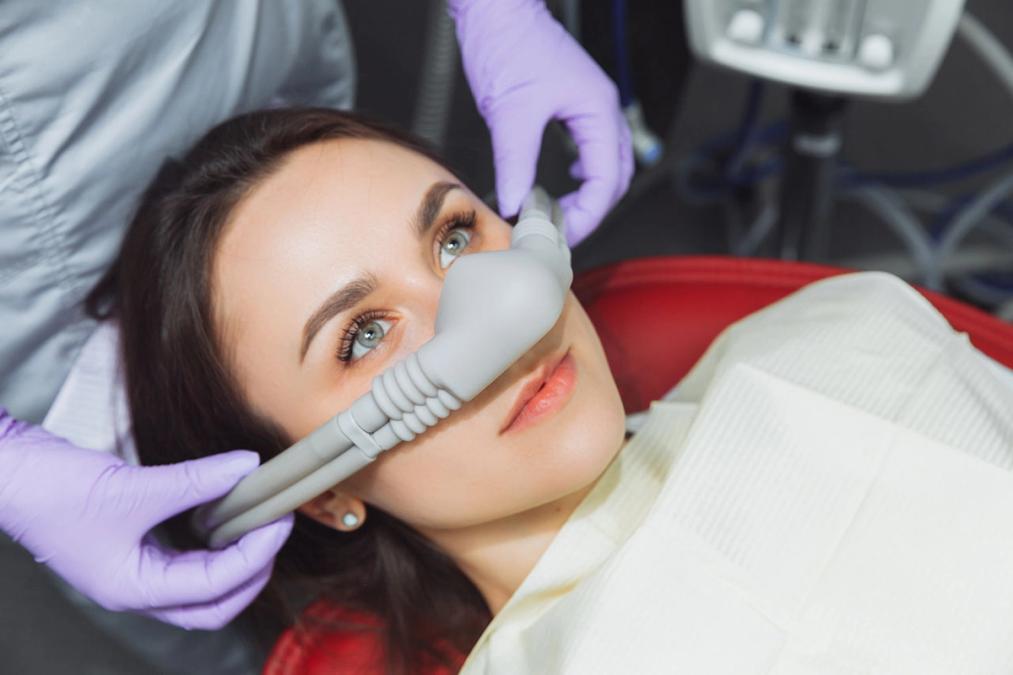
Call Now
509-492-2051
Published on May 12, 2025 | 8 minute read

The sound of dental tools, the bright overhead light, the anticipation of potential discomfort – these elements can transform a simple tooth extraction into an anxiety-inducing experience for many patients. In fact, studies show that up to 60% of people experience some form of dental anxiety, with about 15% avoiding dental care altogether due to fear. But what if your tooth extraction could be a calm, relaxed experience where you feel little to nothing? Modern dentistry has evolved significantly, offering various sedation options that can make even complex extractions feel like a distant dream rather than a vivid reality.
Tooth extractions are dental procedures where a tooth is completely removed from its socket in the jawbone. While preserving natural teeth is always the priority in dentistry, several situations may necessitate an extraction:
At Smart Dental in Richland, Washington, we understand that learning you need a tooth extraction can be concerning. That's why we approach each case with compassion, explaining why the procedure is necessary and how we can make it comfortable through sedation options.
Sedation dentistry refers to the use of pharmacological agents to help patients relax during dental procedures. Contrary to popular belief, sedation doesn't necessarily mean you'll be unconscious – though that is an option in some cases. Instead, sedation exists on a spectrum, allowing for customization based on your anxiety level and the complexity of your extraction.
Here are the primary sedation options available for tooth extractions:
This mild sedative is administered through a small mask placed over your nose. Within minutes, you'll feel a wave of relaxation and mild euphoria wash over you. The effects wear off quickly after the gas is stopped, making it the only sedation option that allows you to drive yourself home afterward.
Best for: Patients with mild anxiety or simple extractions
Taking a prescribed pill about an hour before your procedure induces a moderate state of relaxation. You'll remain conscious but may feel drowsy and experience limited memory of the procedure afterward. This option requires someone to drive you to and from your appointment.
Best for: Patients with moderate anxiety or multiple extractions
Delivered directly into your bloodstream, IV sedation produces a deeper state of relaxation. Though technically conscious, many patients report feeling as if they were asleep and have little to no memory of the procedure. Your vital signs are monitored throughout by trained professionals.
Best for: Patients with severe anxiety or complex extractions
This option renders you completely unconscious and is typically used for the most complex cases or for patients with extreme dental phobia. It's administered in a controlled environment with specialized monitoring equipment.
Best for: Surgical extractions, multiple extractions, or severe dental phobia
Opting for sedation during your tooth extraction offers numerous advantages:
Research published in the Journal of Dental Research shows that patients who receive appropriate sedation during potentially stressful dental procedures are significantly more likely to maintain regular dental check-ups in the future. This translates to better long-term oral health outcomes and fewer emergency dental situations.
Understanding the complete process can help alleviate concerns about your upcoming extraction:
During your consultation at Smart Dental, we'll discuss your medical history, current medications, and anxiety level to determine the most appropriate sedation option. You'll receive clear instructions about eating, drinking, and medication adjustments before your procedure. For most sedation options, you'll need to arrange for someone to drive you home afterward.
Once sedated, you'll feel relaxed and comfortable as the extraction is performed. Local anesthetic will still be used to ensure you don't experience pain, even with deeper forms of sedation. The extraction itself may involve simple removal or, for impacted teeth, a small incision in the gum tissue. Throughout the procedure, your vital signs will be monitored to ensure your safety.
After your extraction, you might experience some grogginess depending on the sedation type used. Our team will provide detailed aftercare instructions to promote healing and prevent complications. These typically include guidance on managing swelling, pain control, dietary restrictions, and oral hygiene practices.
While extractions are sometimes necessary, they're often preventable through regular dental check-ups. The American Dental Association recommends biannual dental visits for most patients, which allows for:
A study in the Journal of Preventive Dentistry found that patients who maintain regular six-month check-ups were 60% less likely to need tooth extractions compared to those who only sought dental care for emergencies.
If you're facing a tooth extraction and feeling anxious about the procedure, you're not alone – but you don't have to let fear stand between you and necessary dental care. At Smart Dental in Richland, Washington, we specialize in creating comfortable experiences through personalized sedation options.
Our experienced team will walk you through every step of the process, answering questions and addressing concerns along the way. We believe that dental care should never be traumatic, which is why we've created protocols designed with your comfort in mind.
Take the first step toward a surprisingly comfortable dental experience by calling Smart Dental at 509-492-2051 to schedule your consultation. Together, we'll determine the most appropriate extraction and sedation plan for your specific needs, ensuring your experience is as stress-free as possible.
Remember, with the right approach and modern sedation options, even tooth extractions can be comfortable, calm experiences that support your journey to optimal oral health.
We use cookies to ensure you get the best experience on our website.
Learn more.